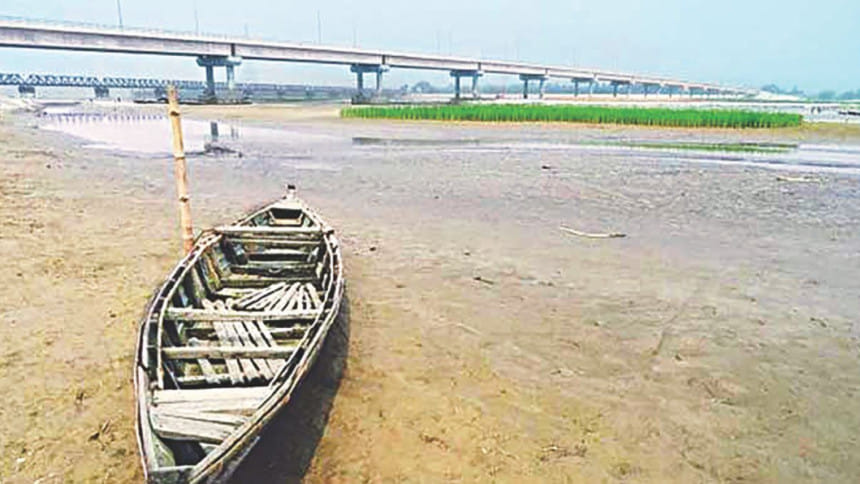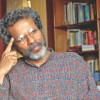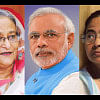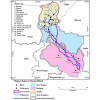Likelihood of agreement on Teesta water sharing

On the last week of May 2018, Indian External Affairs Minister Sushma Swaraj said that the signing of an agreement on sharing Teesta water would not be possible without taking West Bengal on board. She said this at a press conference in New Delhi, according to a video record published on the external affairs ministry website. The solution could not be achieved merely by the two central governments, the government of India and the government of Bangladesh, she said. The West Bengal government is a key stakeholder, Sushma said, adding that they were trying to engage with the West Bengal Chief Minister Mamata Banerjee on the matter.
Teesta is the most important river in northeast of Bangladesh and is the fourth largest river of the country. It originates in the Sikkim valley of the Himalayan range within India. Sikkim reportedly has built five dams and is building 31 more on the upper region of the Teesta river in India.
The flow comes down from Sikkim to West Bengal where India has built a barrage at Gazaldoba from which 85 percent of water flow is reportedly diverted from the Teesta through a link-canal to the upper Mahananda river, which falls on in the Meichi river in Bihar that links the Fulhar river and reaches the Ganges river upstream of Farakka Barrage.
India has plans to irrigate an area of 9.22 lakhs hectares of land and is reportedly increasing withdrawal of water from the Teesta. At present, there are more than 1 lakh hectares under irrigation project, further depleting water for Bangladesh.
The plan adversely affects about 21 million Bangladeshis who live in the basin of the river Teesta, while only 8 million live in the basin in West Bengal and half a million in Sikkim state. The population ratio is 70 for Bangladesh 30 for India.
In recent years, Chief Minister Mamata Banerjee had appointed an expert committee headed by Kalyan Rudra to study the Teesta water-sharing issue. It is believed that Rudra's report was in favour of Bangladesh but Chief Minister Mamata Banerjee had reservations on the report which remains unpublished.
It is noted that during the visit of India's Prime Minister Manmohan Singh to Bangladesh in 2011, a draft agreement on water sharing of Teesta river was prepared in which 42.5 percent of water would be received by India while Bangladesh would get 37.5 percent. The remaining 20 percent of water would be reserved for the sake of river navigability. However, due to the opposition of the chief minister of West Bengal, this draft agreement did not come to fruition.
It was reported in the media that the chief minister of West Bengal in April 2017, proposed to share waters of Dudkumar (known as Torsha in West Bengal). Water experts are of the opinion that the deltas of the two rivers are not the same. Furthermore, there is much less water available in this river than the Teesta and therefore, it cannot be a substitute for sharing water from the Teesta. Moreover, Torsha river originates from Bhutan which means a tripartite agreement (Bangladesh-Bhutan-India) is needed.
It has been reported that at the upper stream of the Manu river in Tripura (India), a dam is being constructed and water flow in the lower stream of river in Habiganj district (in Sylhet) would eventually be threatened with extinction. It has also been reported that a joint committee between Bangladesh-India has been constituted to examine the effects of such a dam on the river under the auspices of Bangladesh-India Joint River Commission established in 1972.
Since 2009 Indo-Bangladesh bilateral relations attained a new and productive trajectory under the Hasina government. One of the manifestations of friendly relations between the two countries is to allow India to undertake trans-shipment of Indian goods from western India to the northeastern states through Bangladesh. The quality of relations with India will enhance if transit or trans-shipment through India's territory to Nepal and Bhutan from Bangladesh is ensured.
Another fact of life for the people of Bangladesh is that water sharing of major rivers (54 rivers flow through Bangladesh from India) is a matter of life and death. And except sharing water from the Ganges in 1996 for 30 years, India has not yet concluded water sharing agreements with Bangladesh on any other common rivers such as Manu, Muhuri, Khowai, Gomati, Dharla and Dudkumar
It was once reported that the interim agreement on the third largest common river, Teesta, although agreed between the two governments by 2011/12, had not been signed because of the opposition from the state-government of West Bengal. It appears that unless the central government in New Delhi makes adequate water available to West Bengal by putting pressure on the upper riparian Sikkim state to halt the operation of existing or proposed dams and diversion of Teesta water to western Bihar, West Bengal is likely to oppose any sharing of water from the Teesta with Bangladesh.
Barrister Harun ur Rashid is a former Bangladesh ambassador to the UN, Geneva.

 For all latest news, follow The Daily Star's Google News channel.
For all latest news, follow The Daily Star's Google News channel. 








Comments